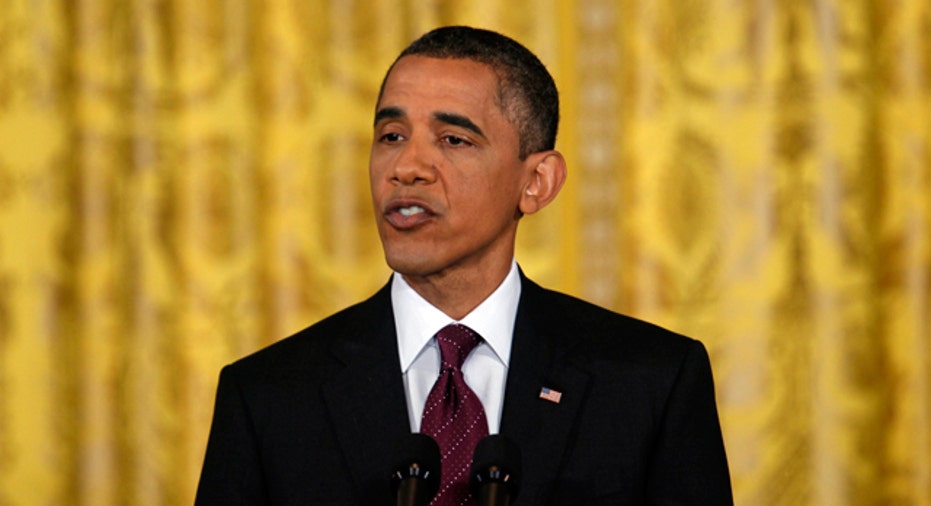Obama Tax Bill -- Winners, Losers

was muted at best. The president says his financial plan would pay for his jobs bill and, over the next decade, reduce the federal deficit.
But because Obama's proposal includes taxes, he's going to have a hard time getting it approved by Congress. While some of his ideas might appeal to the Democrats on the Joint Select Committee on Deficit Reduction, they in turn will face a challenge incorporating taxes into the proposal they must come up with by Nov. 23.
As the debate continues and that deadline nears, here's a look at some of the plan's key points and who wins and loses.
Higher Tax Rates for Higher Earners
Most of the president's individual tax proposals would affect higher-income earners. This is no surprise, since that was part of his campaign for the Oval Office. The two top individual income tax rates are set to increase from 33% and 35% to 36% and 39.6%, respectively, in 2013. That schedule remains in Obama's latest proposal.
That continued focus on richer taxpayers is why the president's plan is "DOA in the House of Representatives," says Jamie Cox, managing partner of Harris Financial Group in Richmond, Va.
"It might have a fighting chance in the Senate," says Cox, but Obama probably would have more success on Capitol Hill by suggesting some increase in revenue based on doing away with tax expenditures, those tax deductions and credits that cost the U.S. Treasury money.
Those, too, are in the Obama plan but again focusing on wealthier taxpayers. Higher earners who itemize would find the value of their deductions reduced to only 28% of their worth.
Higher earners previously faced a limit on their itemized deductions, but that was a phaseout method. "As you went up in income, it could be a pretty good bite," says Bill Smith, managing director in the national tax office of CBIZ MHM in Bethesda, Md. "But this is a flat cap if you meet the income limits, so it's immediate from dollar one."
Millionaires Would Pay More
Then there's the Buffett Rule, named after renowned investor Warren Buffett who complained he and his rich peers don't pay enough taxes. It would create a higher tax rate for those making $1 million or more, and it has been equally applauded and lambasted.
"It's really bad that Buffett pays less than his secretary," says Cox, "but the way to solve that is to lower everyone's taxes, bring rates down instead of raising some."
Even death wouldn't protect the very wealthy from tax increases.
As part of the December 2010 tax compromise between Obama and Republican lawmakers, the resurrected estate tax allows for up to $5 million of an estate's value to be excluded from taxation through 2012. Assets exceeding that amount are taxed at a 35% rate.
Obama's plan would roll the estate tax back to the 2009 tax-year levels. Under those parameters, the first $3.5 million of assets left by a deceased taxpayer would be excluded from taxation, but property worth more than that would be taxed at 45%.
Workers Would Win
If Congress OKs the infrastructure components of Obama's proposal, recipients of those newly created public sector jobs that would be created would win, says Adam Koos, founder and president of Libertas Wealth Management Group in Columbus, Ohio.
An even wider positive worker impact would come from payroll tax proposals. "We got our reduction from 6.2% to 4.2% this year," says Smith. Obama's proposal cuts it in half for 2012, from 6.2% to 3.1%, and also applies the reduction to the self-employed.
The employee payroll tax extension, according to government calculations, would provide a tax cut of $1,500 to the typical family earning $50,000 a year.
"That's money directly and quickly into your pocket," Smith says.
In addition to the individual payroll tax changes, Obama also would cut the employer portion to 3.1% for the first $5 million a company pays in wages. The president also would offer what he calls a payroll tax holiday, an elimination of payroll taxes in 2012 for any business that increases its payroll by hiring new workers or increasing wages for existing workers.
Complaints all Around
The bill has garnered the expected Republican complaints that it contains too many tax increases. But some in the president's own party are not happy either. They wanted him to use this opportunity to make a bolder tax reform statement.
"He got some criticism because it mostly (contained) the specific loophole closers that he'd been advocating all along rather than fundamental tax reform," says Mark Luscombe, principal federal tax analyst at CCH in Riverwoods, Ill., a provider of tax information and services.
Congress' special deficit committee, however, could incorporate some of the president's proposals in its final plan, and those recommendations could substantially change the tax code, Luscombe says.
But again, timing is the key. While any job-related provisions would take effect as soon as possible, major tax changes might well be put on the back burner. Part of that reason is because 2012 is an election year.
"There are politics on both sides," says Koos. "It's a game now where people are playing for the next 13 to 14 months."
"It's difficult to predict with certainty what shape tax reform will take at this point," Luscombe says. "But the good news from a planning standpoint is that any major revisions are not likely to take effect until 2013 to give everyone some breathing room."



















